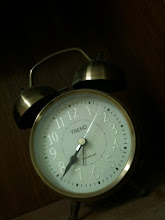The key to guide your history taking during long case exam lies within the line,
"Which ward are you admitted currently?",
"Which doctor?" or
"Which clinic that have been following you up?" ; because it will indicate what is the chief complaint that should be tackled. Of course, it may not be entirely true as some patients may have been followed up for certain chronic diseases but they volunteered for the exam with different presentation or with a totally different diagnosis that has no relation to those chronic diseases at all.
I may be wrong, but it is imperative to make sure that you try your best not to refer to the written text when you are presenting the history to the examiners. It is part of the "showmanship", so as to make us appear confident and well prepared to answer any questions that will be asked later. Unfortunately, I still have to take a peek to the scribbled text during presentation. Apart from that, like any other "interview", other soft skills such as mastery of English, proper use of terms, smooth narration (rather than point by point), manipulation of tones (to stress some points from the others) etc are just as important. However, like I have mentioned prior, "showmanship" is my biggest weakness. Even though there are much improvements, yet I'm still not at my personal best. There's still room for further improvement.
If the patient is not a good historian, do mention about it to the examiners earlier during case presentation. It will affect their perception towards your history taking and presentation skills, which in turn will affect your marks.
Never ever forget to include systemic review in your history. Most of us will forget, unless we are consciously reminding ourselves about it.
Don't wait for the examiner to prompt you, keep on presenting unless you are stopped by them.
Summary - Keep it short and simple. Summary must lead the examiners to your working diagnosis rather than repeating the chief complaint. E.g. Chief complaint: Low mood, loss of appetite, reduced sleep for three weeks, and suicidal ideation. Summary : [Patient's particular] , presented with symptoms suggestive of depressive disorder, associated with suicidal ideation for the last three weeks. [I still have to practice...
T_T]
Usually after the presentation, we will be brought to the bedside to perform physical examination or mental status examination for psychiatric patients. Plan with the patient on how he/she should respond when she was given certain instruction in front of the examiners as you proceed with physical examination prior to presentation. E.g.
"Makcik, nanti bila saya minta makcik beritahu saya bahagian mana yang sakit, makcik tunjuk pada bahagian yang paling sakit kemudian baru beritahu kawasan lain yang turut sakit..." (Ma'am, later when I ask you to show me where the pain is, please pinpoint the site where it has the highest intensity and then show me the rest of the site that is less painful if any).
This is just my 2 cents worth of advice. I am not the best, just feels like sharing so that you won't repeat my mistakes. Hopefully this will be my last long case presentation as a medical student. Hopefully I will secure a pass for this examination... Ameen.
===============
Next: Short Cases examination on Saturday. The final 30 minutes for this examination.







